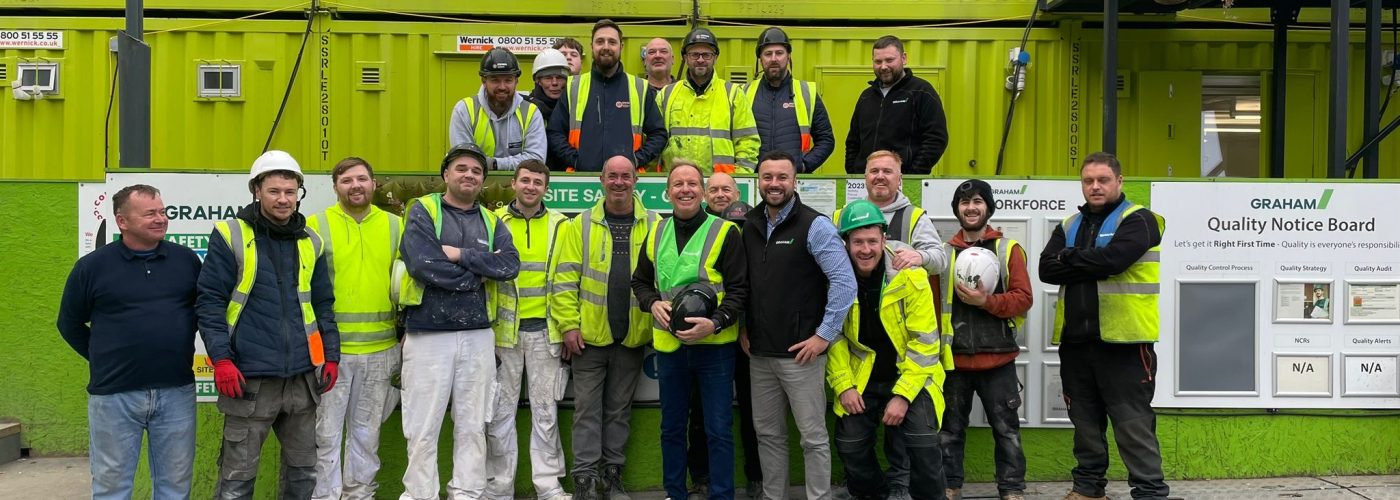By Trevor Steven, mental health ambassador, Causeway Technologies

Construction sites are bustling hubs of activity, but the focus is often geared towards the finished product and the safety and well-being of the building’s occupants. Rarely do we take a moment to consider the people who bring these structures to life: the construction workers.
However, it is important to ensure they are not overlooked.
The latest figures from the Health and Safety Executive (HSE) show that 45 building workers died because of work-based accidents in 2022/23. Shockingly, there were 507 cases of suicide among them in 2022.
The real crisis in construction
Having visited several construction sites throughout the country in my role as mental health ambassador for Causeway Technologies, I’ve surveyed a total of 1,439 workers about their mental health.
Over an 18-month period, I gathered valuable insights into the reality of the mental health of such workers.
More than half (56%) of respondents said they were either currently experiencing or have experienced a mental health problem in the past and 12% said they had experienced or were experiencing suicidal thoughts. The top five mental health issues were anxiety (40%), depression (37%), fatigue linked to low mood (28%), lack of self-confidence (25%), and feeling overwhelmed (25%).
Just 21% of those surveyed said they have been diagnosed by a GP or other professional as having a mental health problem, which indicates there is a large group of construction site workers having to cope with undiagnosed symptoms.
Work is having a negative impact
While many said they were fighting battles in their personal lives, workers are plagued by worries in a professional setting about unrealistic deadlines, poor work/life balance and inadequate staffing.
When asked what they think contributes to poor mental health in the construction industry, 59% said long and irregular working hours.
Almost half (45%) of respondents cited job security as a key contributing factor for poor mental health.
This is not necessarily surprising when you consider that government data from 2018 suggests nearly half of construction workers might lack the security of a permanent position.
Such statistics show the importance of acknowledging the prevalence of temporary workers and subcontracted workers within the construction industry, as they often miss out on the benefits typically associated with permanent roles.
Some of the feedback we gathered from construction workers was about how they don’t always receive financial support if they require time off for any sickness absences. It was said that factors such as this could be contributing to poor mental health and high suicide rates.
A new definition for construction cost
Our research prompts a critical re-evaluation of how we define construction cost.
Traditionally, this refers to the financial figures outlined in project agreements. However, our findings suggest we should adopt a potentially more holistic perspective: to prioritise the idea of talking about mental health at work.
Perhaps the true cost of construction should include not only the financial outlay but also the human cost – the impact on the mental health of the workforce who transform blueprints into reality. The UK construction industry is worth £132.989 billion (in annual output). Is it fair to stand and watch future construction workers suffer mentally while the industry flourishes?
Causeway’s commitment
We are urging all contractors to consider the mental well-being of staff and demonstrate to workers their commitment to ensuring mental health is made just as important as profits by signing up to our pledge.
The support we receive will allow us to lobby the government – centrally and locally – to drive a change in legislation to support better mental health in the construction industry.
Specifically, we want to see mental health policies mandated for all procurement frameworks, contracts, and processes.
The construction industry does have the capacity to change, despite the tragic statistics. Just look at how much progress has been made in other areas of health and safety.
Read more about our mental health campaign and sign the pledge today via: www.causeway.com/about-us/mental-health
Building, Design & Construction Magazine | The Choice of Industry Professionals





